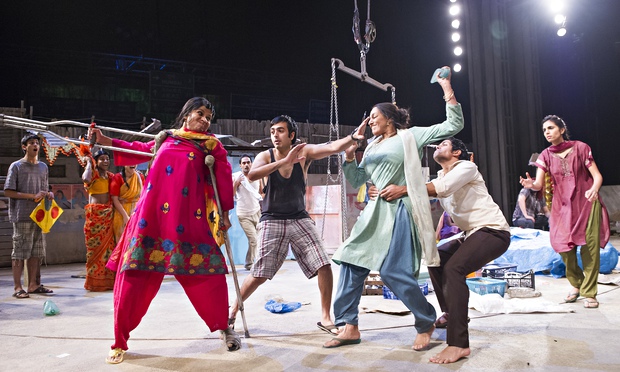Theatre is the great art form of now,” says Robert Icke. “It happens to you live; we cook the food live. And if it’s not doing that, there’s a teenager in me that starts rebelling and going, ‘I just don’t know what that is for.’”
Although he is not yet 30, Icke has already proved his originality as a stage director. His 1984 (co-created with Duncan Macmillan for Headlong and currently touring the US) reshaped Orwell’s dystopian novel into a disturbingly timely stage work about surveillance and thought manipulation. The production won Icke and Macmillan the Best Director accolade at the 2014 UK Theatre Awards.
Another Best Director award followed last year, after Icke launched the Almeida Theatre’s Greek season with a revelatory and electrifying new version of Oresteia that approached the 2,500-year-old tragedy as if it were a contemporary text. Icke configured the theatre as a courtroom where nothing was certain — justice, narrative, the role of theatre itself — making us wrestle with our own judgment on the desolate central story.
So how do you follow such a harrowing, blood-soaked epic? In Icke’s case, rather surprisingly, with Chekhov. He’s back in the Almeida rehearsal room with Uncle Vanya, which, in contrast to Oresteia, with its cast of royals and deities, depicts a rundown rural estate peopled with disconsolate misfits.
“I really wanted to do something that was less bleak,” he explains. “Which seems hilarious now I am working on it! I spent 14 months working on nothing but Oresteia, which was blissful — but it’s a dark place to live. So I wanted something that was a bit more emotional; more microscope, rather than telescope. And this story is the opposite [to Oresteia] in a way: nothing actually happens and there really is no plot in the traditional sense.”
We are huddled beside a portable heater in a spartan back office at the Almeida’s north London rehearsal space. On the other side of the door, two cast members are practising lines, committing to memory the farewell scene between Astrov and Elena. Even when delivered with no emotion, it is heartbreaking — one of the many pinch-points in Chekhov’s humane masterpiece of misdirected love, wasted potential and thwarted hopes.
It’s the Russian playwright’s sheer daring that fascinates Icke. “Chekhov talks and talks about how you make it real,” he observes. “He says in a letter — this is paraphrased — everyone runs around on stage firing guns; too much stuff happens. There should be plays where people just eat and then fall asleep and get a bit drunk and say things that they don’t really mean.
“[In Uncle Vanya] characters keep doing things that you wouldn’t expect them to do in a traditional plot structure. So they say something and then don’t do it. He is so good at the unfinished sentence and the thought that nobody responds to. There’s just nothing like it. I can’t think of anyone else now who can achieve that sort of observation.”
(…)


